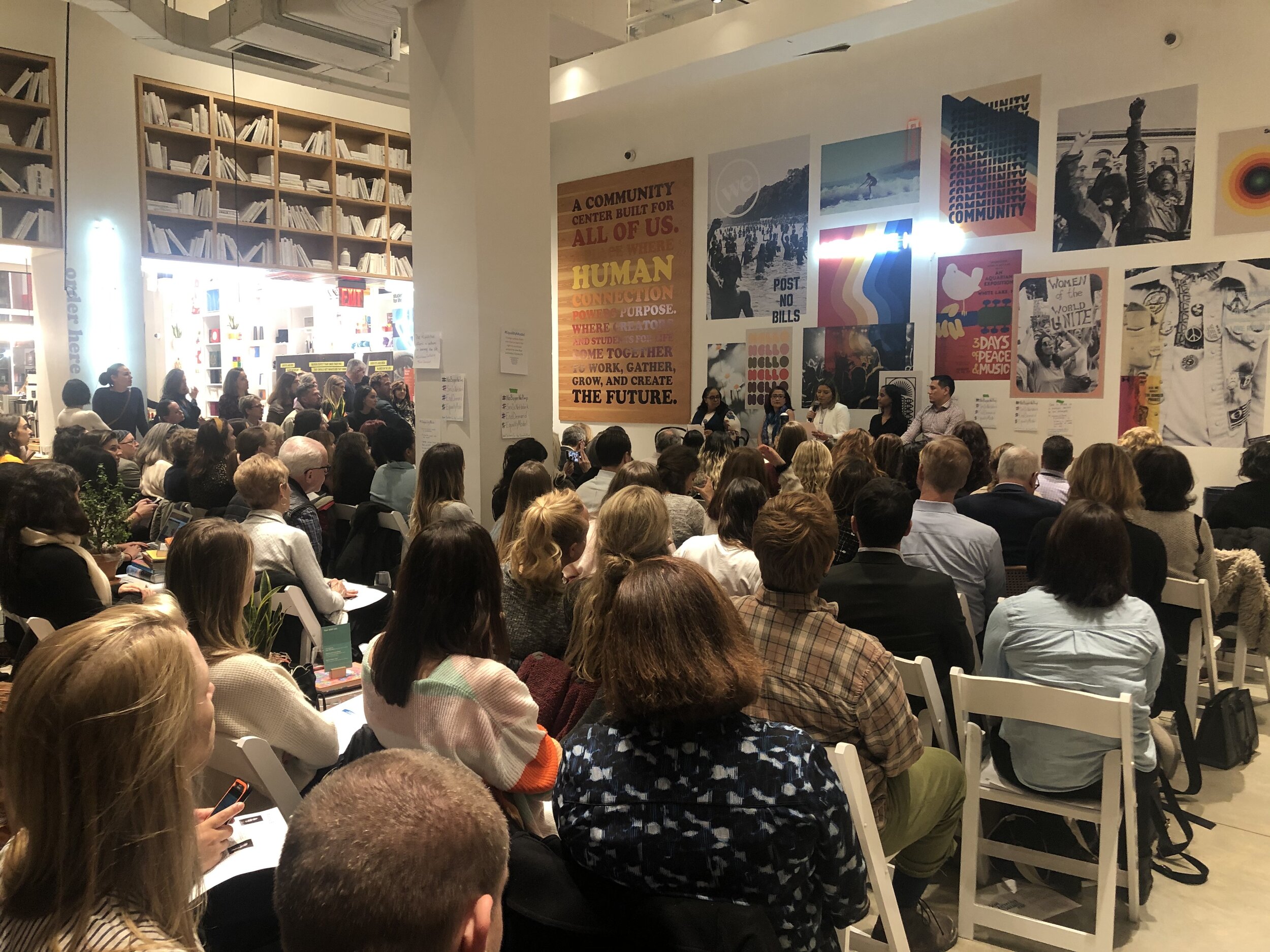Opponents of sex work decriminalization launch 2020 legislative fight
/Photo courtesy of New Yorkers for the Equality Model.
By Emma Whitford
Opponents of the decriminalization of the adult sex trade gathered in a Manhattan WeWork Monday night to celebrate the launch of a new coalition and legislative campaign they say will protect vulnerable people in the sex trades and hold those who purchase sex and human traffickers to account.
The packed event, organized by the coalition New Yorkers for the Equality Model, featured late-night television host Seth Meyers and actress Ashley Judd — who has been confronted by sex workers for describing sex work as “paid rape” — and was strictly managed.
Coalition spokesperson Jennifer Holdsworth instructed a reporter that the evening’s panel discussion was off the record, and provided a written statement from Alexi Meyers, an attorney with Sanctuary for Families, a coalition member. “The Equality model decriminalizes people in prostitution while also providing exit strategies and services to those who need it,” Meyers stated, adding, “our next step is introducing legislation in 2020.”
Organizers tweeted quotes from speakers, including a “survivor committee,” throughout the event.
New Yorkers for the Equality Model formed as an answer to Decrim NY — a grassroots coalition of people with experience in the sex trade who began organizing earlier this year. Monday offered a glimpse of the legislative battle to come. Signs adorning the walls featured hashtags including #NoBuyerNoPimp and #SexIsNotWork.
In contrast to decriminalization, which would end punishment for the consensual buying or selling of sex, the model espoused Monday — known variously as the “end demand model” and the “equality model” — prioritizes the policing of people who purchase sex, known colloquially as “johns.” Similar legislative models exist in countries including Sweden, Norway and Canada.
Proponents of this approach also reject the term sex worker in favor of “prostituted people” and “people in prostitution.”
New Yorkers for the Equality Model, which also includes the Coalition Against Trafficking in Women and Af3irm, believes that the sex trade is fundamentally exploitative, and should be eliminated with the assistance of law enforcement.
Decrim NY counters that only decriminalization will protect vulnerable people in the sex trades — whether by choice, necessity or coercion — from dangerous and biased policing practices.
“Police and criminalization are a major source of violence for so many in our community, and continuing to criminalize people for sharing resources, creating workplaces for sex workers, or being clients of sex workers doesn’t make us safer,” Decrim NY spokesperson Nina Luo said in a statement to the Eagle.
Both Decrim NY and New Yorkers for the Equality Model prioritize health, housing and legal services for people who trade sex.
Decrim NY introduced legislation in June to decriminalize the sale and purchase of sex between adults. The first-of-its-kind bill, known as the Stop Violence in the Sex Trades Act, would repeal and amend penal code sections that criminalize the sale, purchase and promotion of sex, while preserving mechanisms for prosecuting the trafficking of adults or minors (which by federal definition entails force, fraud or coercion).
The bill also aims to prevent collatoral consequences of engaging in sex work, such as eviction and criminal records.
Two state lawmakers seated in the front row at Monday’s event, Manhattan State Sen. Liz Krueger and Brooklyn Assemblymember Tremaine Wright, said they will be introducing legislation supported by New Yorkers for the Equality Model during the upcoming legislative session.
“We're decriminalizing the activity by the seller, but not decriminalizing the buying or the pimping or the brothel owners or the traffickers,” Krueger told the Eagle. “I think it's really important that New York state doesn't end up the brothel capital of America.”
Krueger also said Decrim NY’s bill would prevent district attorneys from prosecuting traffickers because it would eliminate charges for promoting prostitution. DAs often use these charges as grounds for prosecuting traffickers.
Brooklyn Law School professor Kate Mogulescu, an attorney who supports Decrim NY’s bill, said this should not be justification for maintaining promoting laws, which can criminalize sex worker’s roommates and coworkers.
“Prosecutors frequently use promoting prostitution charges for plea bargaining or where they simply don’t have enough evidence to establish sex trafficking,” Mogulescu said.
“A common refrain is how difficult it is to prove trafficking,” she added. “If that is the case, instead of relaxing standards of due process and fairness, perhaps we should go back and interrogate what it is we are trying to accomplish in the first place?”
The question of sex work decriminalization took center stage during the Queens District Attorney Democratic primary this year. Tiffany Cabán, the only public defender in the race, echoed Decrim NY’s position that prosecuting buyers and third parties in the sex trade compounds stigma and isolation for marginalized sex workers such as migrant massage workers and trans women of color.
Cabán, who narrowly lost, pledged to “decline to prosecute all offenses related to sex work, including the prosecution of customers and landlords.”
DA-elect Melinda Katz, who defeated Cabán in the primary and won the general election earlier this month, did not immediately respond to a request for comment. Previously, her campaign said that Katz “won’t prosecute sex workers for charges like loitering for the purpose of prostitution.”
Both Decrim NY and New Yorkers for the Equality Model support legislation that would repeal that prostitution-related loitering misdemeanor, which disproportionately impacts trans women of color in Queens. State Sen. Brad Hoylman, who co-sponsors the bill, recently pledged that the bill will pass this upcoming session.




